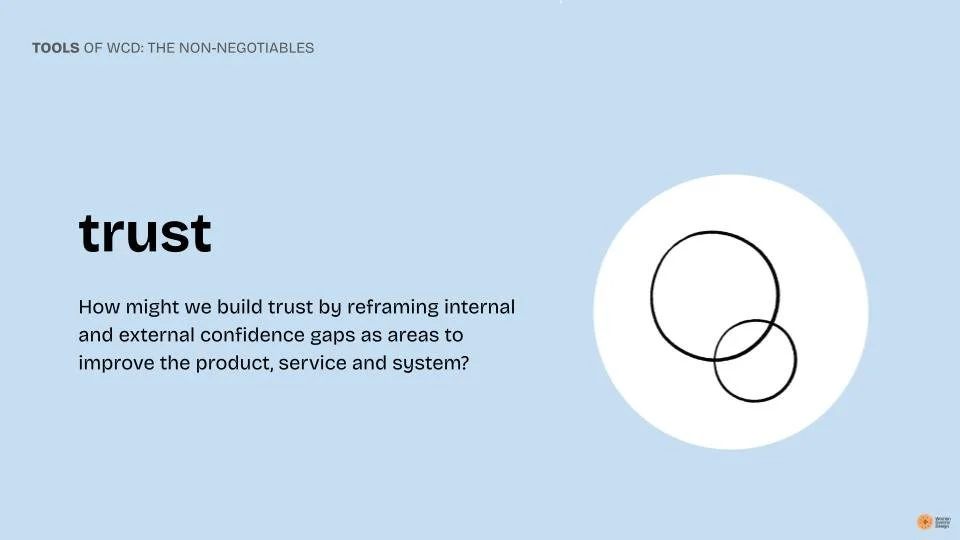The Non-Negotiables: Trust
The trust non-negotiable was inspired by a conversation I had with psychologist & neuroscientist Mallory Feldman. “When you move through a world that isn't designed for you, you learn that you do not matter,” she said.
Until then, the trust theme (then called confidence) was about a common topic in gender – lack of confidence, imposter syndrome etc. It's not that I believed that women has an innate lack of confidence—far from it. It's just that I hadn't found the words to describe something I had felt myself and why I felt it.
With the understanding that lack of confidence actually comes from having to navigate a systemically unequal world, trust became one of our non-negotiable themes, because it best described a continuous feedback loop I began to see:
How does this mistrust feedback loop show up in our world?
In the workplace: Leadership / confidence building trainings that target women [without acknowledging how the workplace is falling short of their needs]
In healthcare: A history of misdiagnosing pain as hysteria. (I highly recommend listening to episode 1 of The Retrievals series for a contemporary example of this).
How do we break out of the loop?
What if we there was a better way to build trust both with the system and with the self instead of just burdening the self?
What if we could focus on systemic inequities that drive the mistrust of self and chip away at that instead of reinforcing the unfair gender narrative?
Putting into practice
The trust theme exists to help us break out of a continuous feedback loop: the world doesn’t design for me (mistrust in system) <—> I must fix myself to fit the world (mistrust in self). Thus, trust encourages us to reframe problem statements to be about the larger inequity at play (mistrust in system).
Here are some design levers practitioners are applying to reframe:
Design for system & self: In addition to delivering educational programs to young women to close the gender gap in tech, InnovaterHer have a Corporate Partnership Program to help create workplaces that actually work for the women they are training.
Identify & limit shame & alienation: Fintech app Oraan realised that it was losing potential women customers because of its alienating language during sign-up & onboarding. Instead of asking “what is your occupation,” they began asking “how do you spend your days.” This made many women feel like this app was for them rather than experiencing shame in case they did not have a formal occupation.
Practice radical transparency: I have fewer examples of how this is being done, but many examples of where it could & should be. There’s been horror stories about Buy Now Pay Later (BNPL) apps targeting women without being clear about fees. Health insurance in the US fails to provide billing information until much later when money has already been spent.
Resources to learn more:
Interested in having us host a workshop or training for your team? Learn more here and contact us.


